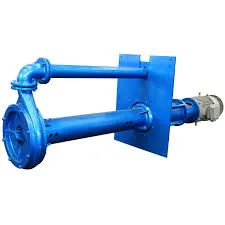Spanish
- Afrikaans
- Albanian
- Amharic
- Arabic
- Armenian
- Azerbaijani
- Basque
- Belarusian
- Bengali
- Bosnian
- Bulgarian
- Catalan
- Cebuano
- Corsican
- Croatian
- Czech
- Danish
- Dutch
- English
- Esperanto
- Estonian
- Finnish
- French
- Frisian
- Galician
- Georgian
- German
- Greek
- Gujarati
- Haitian Creole
- hausa
- hawaiian
- Hebrew
- Hindi
- Miao
- Hungarian
- Icelandic
- igbo
- Indonesian
- irish
- Italian
- Japanese
- Javanese
- Kannada
- kazakh
- Khmer
- Rwandese
- Korean
- Kurdish
- Kyrgyz
- Lao
- Latin
- Latvian
- Lithuanian
- Luxembourgish
- Macedonian
- Malgashi
- Malay
- Malayalam
- Maltese
- Maori
- Marathi
- Mongolian
- Myanmar
- Nepali
- Norwegian
- Norwegian
- Occitan
- Pashto
- Persian
- Polish
- Portuguese
- Punjabi
- Romanian
- Russian
- Samoan
- Scottish Gaelic
- Serbian
- Sesotho
- Shona
- Sindhi
- Sinhala
- Slovak
- Slovenian
- Somali
- Spanish
- Sundanese
- Swahili
- Swedish
- Tagalog
- Tajik
- Tamil
- Tatar
- Telugu
- Thai
- Turkish
- Turkmen
- Ukrainian
- Urdu
- Uighur
- Uzbek
- Vietnamese
- Welsh
- Bantu
- Yiddish
- Yoruba
- Zulu
Telephone: +86 13120555503
Email: frank@cypump.com
Nov . 08, 2024 11:43 Back to list
Efficient Solutions for Wastewater Pumping and Treatment Systems in Modern Infrastructure
Understanding Sewage Treatment Pumps An Essential Component in Wastewater Management
Sewage treatment pumps play a crucial role in the wastewater management process, ensuring the effective handling of sewage and industrial wastewater. As urbanization continues to rise globally, the need for efficient treatment solutions becomes increasingly vital. This article delves into the importance of sewage treatment pumps, their types, functions, and the technology behind them.
The Importance of Sewage Treatment
Sewage is a byproduct of human activities, generated from households and industries. Proper treatment is essential to prevent environmental pollution and protect public health. Untreated sewage can contaminate water bodies, leading to serious ecological damage and posing health risks to communities. Therefore, sewage treatment facilities are designed to remove harmful substances from wastewater before it is discharged into the environment.
At the core of these treatment facilities are sewage treatment pumps. These pumps are designed to transport sewage and wastewater from one process to another, ensuring that the treatment process is efficient and effective.
Types of Sewage Treatment Pumps
Sewage treatment pumps come in various types, tailored to meet specific needs within the treatment process. The most common types include
1. Submersible Pumps These pumps are designed to operate submerged in sewage or wastewater. They are often used in sewage lift stations where gravity alone cannot transport sewage to the treatment facility. Submersible pumps are efficient, minimize odors, and reduce the risk of mechanical failure due to wet conditions.
2. Centrifugal Pumps These pumps are widely used in sewage treatment for their ability to move large volumes of fluid quickly. They work by employing a rotating impeller to create centrifugal force, drawing sewage into the pump and pushing it out through a discharge pipe. They are ideal for applications requiring continuous flow.
3. Positive Displacement Pumps Unlike centrifugal pumps, positive displacement pumps move fixed amounts of sewage with each cycle. This type of pump is beneficial in applications requiring precise flow rates and is effective in handling viscous materials, making it suitable for industrial wastewater.
4. Grinder Pumps These pumps are designed to shred solids and debris within the sewage before pumping it to a treatment facility. They are particularly useful in residential settings where the wastewater contains large solids that could clog standard pumps.
sewage treatment pump

Functions of Sewage Treatment Pumps
Sewage treatment pumps perform several critical functions in wastewater management
- Transporting Wastewater The primary function of sewage treatment pumps is to transport wastewater from collection points to treatment facilities. This is crucial for maintaining the flow of sewage and ensuring that the treatment process is uninterrupted.
- Maintaining System Pressure Efficient pumping systems help maintain the necessary pressure within the sewage system, allowing for effective sewage transport even over long distances.
- Facilitating Treatment Processes Pumps help to move wastewater through different stages of treatment. For example, they may transfer influent (incoming sewage) to screening processes, aeration tanks, or desludging processes.
Advances in Pump Technology
The design and technology of sewage treatment pumps have evolved significantly over the years. Modern pumps incorporate advanced materials that resist corrosion and wear, enhancing their durability and reducing maintenance costs. Additionally, smart pump systems equipped with sensors and automated controls optimize performance, reduce energy consumption, and minimize downtime.
Some pumps are now equipped with monitoring systems that provide real-time data on pump performance, allowing for predictive maintenance and reducing the risk of failures. This technology ensures that sewage treatment plants operate at optimal efficiency, ultimately contributing to better wastewater management.
Conclusion
Sewage treatment pumps are integral to the effective management of wastewater, playing a critical role in protecting public health and the environment. As urban populations grow and industrial activities expand, the need for reliable sewage treatment solutions will only increase. By investing in advanced pump technologies and maintaining efficient wastewater systems, communities can safeguard their water resources and promote a healthier environment for future generations. Understanding the function and importance of sewage treatment pumps is key to recognizing their vital role in our wastewater management systems.
-
Reliable Non-Clog Sewage Pumps with GPT-4-Turbo Tech
NewsAug.04,2025
-
High-Performance Air Pumps for Sand & Gravel | Efficient Transport
NewsAug.03,2025
-
ISG Series Vertical Pipeline Pump - Chi Yuan Pumps Co., LTD.|Energy Efficiency, Corrosion Resistance
NewsAug.03,2025
-
ISG Series Pipeline Pump - Chi Yuan Pumps | Energy Efficiency&Compact Design
NewsAug.03,2025
-
ISG Series Vertical Pipeline Pump - Chi Yuan Pumps Co., LTD.|High Efficiency, Low Noise, Durable
NewsAug.02,2025
-
ISG Series Vertical Pipeline Pump - Chi Yuan Pumps | High Efficiency, Low Noise
NewsAug.02,2025










